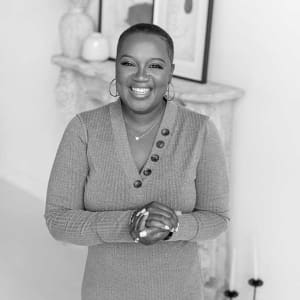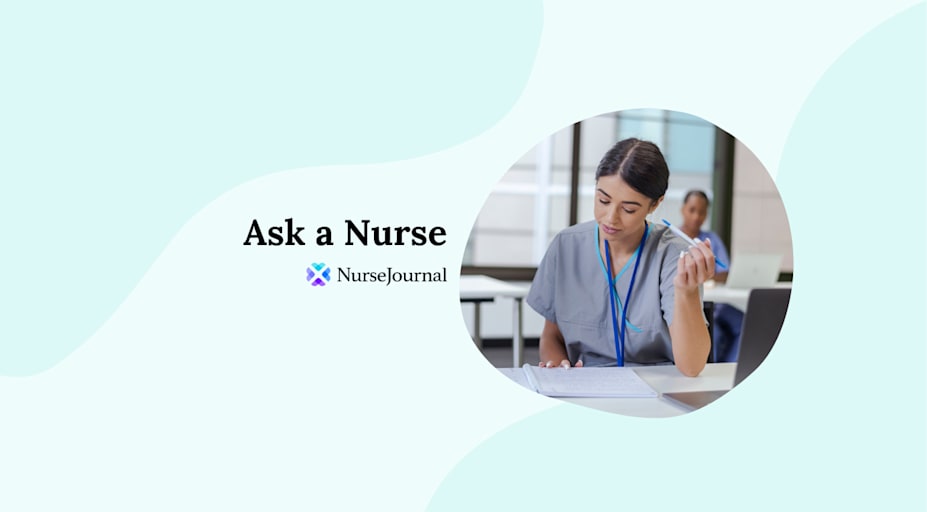Ask a Nurse: What Have You Learned as a Nurse That Nursing School Didn’t Teach You?

In our Ask a Nurse series, experienced nurses provide an insider look at the nursing profession by answering your questions about nursing careers, degrees, and resources.
Question: What Have You Learned as a Nurse That Nursing School Didn’t Teach You?
“Once you become licensed and begin practicing, you quickly realize that you are not in a controlled environment and textbook practice isn’t practical.”
— Andrea Bendig, MSN RN CM DN CDP, Owner/Founder – Wellness Strategies Group
While you learn so much in nursing school, from physiology to the basics of patient care, any experienced nurse will tell you that the real learning starts on the job. This may seem daunting, but remember all the nurses who came before you and succeeded.
We spoke to three experienced nurses who share the most important lessons that nursing school doesn’t teach.
Clinicals vs. Real-World Nursing Experience
While your experiences in clinical rotations are undoubtedly valuable, you’re limited in the tasks you can complete and typically only have a few patients you’re responsible for.
In the real world, depending on your practice setting, you can be responsible for six patients or more in a given shift. This transition is tough as a nurse, and the differences don’t stop there.
Andrea Bendig, MSN, RN, CM, DN, CDP, has been a nurse for over 30 years and recalls learning the all-important difference between treating the patient vs. the numbers.
Many new nurses marvel at veteran nurses’ intuition. We have all experienced when an expert nurse anticipated a decompensating patient long before anyone else, and that intervention saved the patient’s life. But that kind of gut sense doesn’t happen overnight. Instead, you develop your clinical assessment skills, pathophysiology, pharmacology, and knowledge base over years of practice.
Bendig shares, “You need to be able to think fast and problem solve independently. You must be confident in your skill set and always remember to look at your patient.”
Popular Online RN-to-BSN Programs
Learn about start dates, transferring credits, availability of financial aid, and more by contacting the universities below.
5 More Things You’ll Learn as a Nurse, Likely After Nursing School
While there is no end to the knowledge you can gain as a nurse, these five lessons will help you significantly as you navigate your career to set yourself up for success:
1 | How to effectively communicate with the patient/their family
Communicating with patients and their families can feel intimidating to new nurses – especially during high-stress situations. They will turn to you for your clinical knowledge, insight, and emotional support, which can be challenging when you’re just developing your knowledge base.
Tiffany Gibson, MSN, RN, NPD-BC, CPN, is an experienced nurse leader who teaches new nurses how to master emotional intelligence at The New Nurse Academy.
Gibson says, “Conflict is an inevitable part of any nursing job. Whether it’s with your patient or their family, your coworkers, or your boss – conflict happens. Nursing school doesn’t teach us how to communicate through a crisis. If you don’t have emotional intelligence and self-regulation down, you won’t be able to manage others when they’re in turmoil.”
Gibson recommends cultivating self-awareness and learning to regulate your emotions, as they are crucial skills for succeeding in nursing and beyond.
2 | How to cope with a patient’s death
If you choose to work in an acute hospital setting, death is an inevitable aspect of the job. We all recall patient deaths that hit us particularly hard and stuck with us. You must find time to unpack those feelings in a safe place, so you can process them and move on. Discussing the experience with another healthcare worker who understands and is willing to support you at that moment is often helpful too.
3 | How to avoid/manage nurse burnout
Irnise Williams Esquire is a registered nurse who left her bedside nursing position to pursue law and business development. Unfortunately, Williams experienced burnout after feeling pressured to over-extend herself routinely and take on overtime and additional responsibilities.
Williams shares, “Nursing was never a regret for me. I only regret allowing the system to burn me out because I didn’t set boundaries. I hate that I lost that joy and passion because I didn’t transition to my next journey soon enough.”
You can avoid exhaustion and burnout by setting and enforcing boundaries like declining additional shifts or invitations to unit leadership positions that don’t interest you.
4 | How to create a plan for your career
Williams believes the most important thing you can do as a new nurse is create a career plan, no matter your ultimate goals.
“Figure out what you really want to do in nursing and establish your path forward. No matter what that is, breaking the journey down into smaller steps will keep you motivated and focused and help you avoid the negativity,” she says.
Whether it’s preparing for a certification exam, interest in nursing leadership, a graduate program, or something else entirely, explore your options and make a plan.
5 | What to expect when working through unprecedented times
With all the challenges nurses face today, it might be easy to question your career choice. Still, Gibson urges nurses to remain hopeful and resist jumping on the negativity bandwagon.
“Have your own experiences. Social media is more popular than ever, and it can be easy to hear other people’s experiences with nursing and let that cloud your own. Instead, go into every shift with a positive attitude, and you’ll be surprised how much better your experiences will be.”
Advice for New and Aspiring Nurses
No matter what nursing specialty you choose or what practice environment you work in, know that your nursing career is whatever you make it. Use these essential lessons from experienced nurses to chart a path for yourself professionally and enjoy the journey along the way.
- Assess your patient holistically and treat the patient, not the numbers.
- Explore your nursing career options and create a plan to keep you motivated and focused on your goals.
- Prioritize developing emotional intelligence in your nursing practice. This will have far-reaching benefits for you throughout your career.
Meet Our Contributors

Andrea Bendig is the owner and founder of Wellness Strategies Group. She is a registered nurse with 30 years of experience. Nursing is the only career Andrea Bendig knows, making her an advanced and compassionate educator, healthcare navigator, and advocate. Andrea’s extensive experience includes a Director of Nursing role that focused on geriatric care and dementia care within patient homes and assisted living settings.

Irnise Williams is a registered nurse who served on the frontlines of the Covid-19 pandemic in New York City and got her law degree. Williams offers unique insights into the challenges and triumphs of modern nursing and speaks elegantly on the legal, cultural, and policy topics in the field today.

Tiffany Gibson is an experienced nurse leader and nursing professor who started The New Nurse Academy (NNA). NNA is an online coaching, mentoring, and learning community that helps nurses develop professionally and teaches emotional intelligence as one of its core tenants.
You might be interested in

Ask a Nurse: Why Did You Become a Nurse?
Nursing offers a unique set of opportunities in a variety of fields. Check out how it can be a means to an end, just like any other career.

Ask a Nurse: I Failed My BSN With Only One Semester Left. What Are My Options?
Students who fail a BSN program have options to continue to work in nursing. Check out what you can do to have a career in nursing.

Ask a Nurse: How Long Does It Take to Pay Off Student Loans for an MSN?
MSN-prepared nurses have greater career and salary potential. Consider these factors when you estimate how long it may take to pay off student loans.